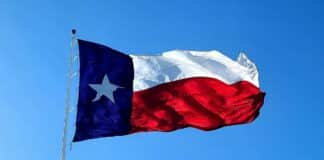The death of Apple Daily marks the end of Hong Kong’s free press, and the west must ask: is it wise to continue empowering the CCP’s destruction of values we cherish?
The Chinese Communist Party and pro-Beijing Hong Kong authorities forced Apple Daily, the last pro-democracy newspaper in Hong Kong, to cease operation this week. The death of Apple Daily marks the end of a free press in Hong Kong, once one of the freest places on the planet.
Founded By a Refugee of Communism
The newspaper was founded 26 years ago by outspoken Hong Kong tycoon Jimmy Lai. Born in mainland China, Lai was one of 2 million refugees who went to Hong Kong to escape communism. He worked his way up from being a laborer at a textile factory to founding a successful clothing company called Giordano, named after a New York pizza parlor.
As The Federalist noted previously: “After watching Beijing’s brutal crackdown on peaceful protesters in Tiananmen Square on June 4, 1989, Lai became an advocate for democracy and an outspoken critic of Beijing.” When Giordano came out with pro-demonstrator T-shirts, the Chines government pulled its business license in mainland China.
Lai had to sell his Giordano stake, and used the money to started a new media empire, Next Media (later changed to Next Digital). Under the corporate umbrella of Next Media, Lai founded Apple Daily in 1995.
“Modeled after USA Today, Apple Daily attracted readers with big and colorful photos, populist opinions, and scandalous gossip about the rich and powerful, as well as a subscription price of two Hong Kong dollars (25 cents),” The Federalist noted earlier. “Apple Daily quickly became one of the most popular newspapers in Hong Kong, and its success helped Lai become a billionaire in 2008.”
A Voice for Democracy
Before authorities shut it down, Apple Daily was one of the strongest pro-democracy voices in Hong Kong. It offered the most favorable coverage of the city’s pro-democracy movements, from the 2014 Umbrella Movement’s demand for universal suffrage to anti-extradition protests in 2019. The newspaper also stood out for sharply criticizing the Chinese Communist Party’s human rights violations, corruption, and suppression of dissent.
The paper’s tone and coverage on these sensitive political issues reflected Lai’s political convictions. Lai was often present at the city’s many pro-democracy protests.
Beijing was so enraged it tried both overt and covert intimidation tactics to silence Lai and his newspaper. In addition to banning all of Next Media’s publications in mainland China, the CCP pushed Hong Kong businesses to pull advertising from Apple Daily. Between plunging advertising revenue and general gravitation toward digital media, Apple Daily struggled. Next Digital reported five straight years of net losses.
Besides suffering financial losses, Lai survived attacks on his life, including from assailants tossing Molotov cocktails at Lai’s home and Next Media’s headquarters. Despite the increasing danger to his safety and his financial abillity to live anywhere in the world, Lai refused to leave Hong Kong. He explained his resolve to stay in an interview: “If we don’t fight … when you lose freedom, you lose everything.”






